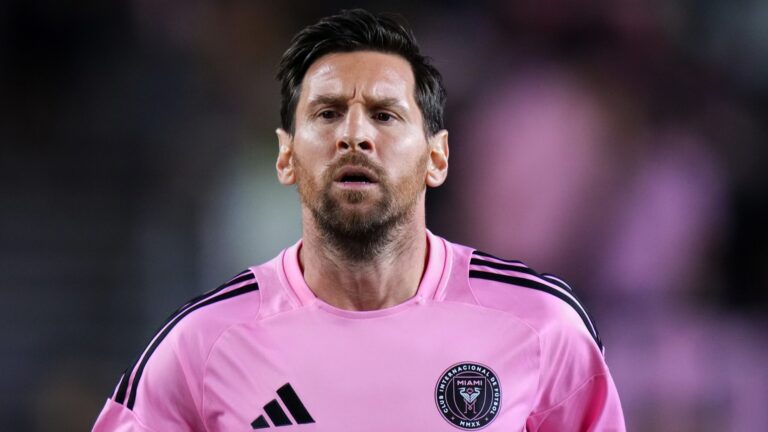


Can Rob Edwards Lead Wolves to Premier League Safety and Beyond?
As Wolves, the struggling West Midlands club, teeter on the edge of relegation, their potential appointment of Rob Edwards emerges as a bold strategy for both immediate survival and future promotion in the Championship. Reliable sources indicate that this move could reshape the team’s trajectory, blending Edwards’ extensive experience with the club’s urgent needs.
Wolves on the Verge of Securing Rob Edwards as New Manager
Insights from esteemed journalist David Ornstein at The Athletic reveal that Wolverhampton Wanderers are close to finalizing the hire of Rob Edwards as their next head coach. This development includes a finalized financial arrangement worth around £2 million between Wolves and Middlesbrough, paving the way for Edwards’ transition.
Edwards’ Background and Ties to Wolves
Having committed to Middlesbrough until 2028, Edwards is reportedly organizing his support staff in anticipation of joining Wolves, where he previously featured as a player from 2004 to 2008. As a former defender, he logged 111 matches for the team, contributing a single goal and building a deep connection with the club.
Furthermore, Edwards stepped in as interim manager for Wolves back in 2016 after Walter Zenga’s departure, overseeing two matches that ended in a stalemate against Blackburn Rovers and a loss to Derby County. Subsequently, Paul Lambert took over permanently, with Edwards continuing in a coaching capacity.
Strategic Vision Behind Edwards’ Appointment for Relegation Avoidance and Promotion
Wolves’ decision to bring in the ex-Watford leader reflects a forward-thinking approach, aiming to secure their spot in the Premier League this season while positioning for a potential return from the Championship next year if relegation occurs in the 2025-26 campaign.
Edwards brings a wealth of knowledge from managing in both elite and secondary leagues, notably steering Luton Town to Premier League promotion through the 2022-23 Championship play-offs. Under his direction, Luton showed resilience in the top flight, accumulating 26 points over 38 outings before dropping to 18th place in the 2023-24 season.
Likewise, at Middlesbrough, where he started in June, Edwards had the team thriving, holding second in the Championship standings and trailing Coventry City by just five points. However, he was absent for their recent 2-1 victory over Birmingham City due to swirling rumors about his impending move.
Wolves’ Dire Form and the Shift from Previous Leadership
In response to a disastrous beginning to the 2025-26 season, Wolves have sought Edwards’ expertise. The team stands alone among England’s top divisions without a league win, having suffered nine defeats and two draws in 11 games.
This poor performance resulted in the removal of Vitor Pereira just last Sunday, merely 45 days after he extended his contract for three years. In his official comments, Wolves executive chairman Jeff Shi expressed appreciation for Pereira’s dedication, noting: “Vitor and his squad put in immense effort for Wolves and assisted us through tough times last year, and we’re thankful for that.”
Shi continued: “Regrettably, the current season’s outset has fallen short of expectations, and even though we were keen to allow the head coach more time to improve, we’ve arrived at a juncture requiring a new direction. We appreciate Vitor and his team’s hard work and extend our best wishes moving forward.”
Pereira’s last game ended in a 3-0 defeat to Fulham, where he voiced his determination, stating: “I’m resilient and never surrender. It’s not in my nature. I’ll focus on rebuilding the team’s spirit and refining our tactics in upcoming sessions to prepare for what’s next.”
During the interim, Wolves’ youth coaches, James Collins of the Under-21s and Richard Walker of the Under-18s, managed the squad in a 3-0 loss to Chelsea. Notably, Pedro Neto, once with Wolves, scored against them, joined by Malo Gusto and Joao Pedro in the scoring.
Upcoming Challenges for Edwards at Wolves
If Edwards’ appointment is confirmed as anticipated, his debut as Wolves manager will be a league encounter with Crystal Palace on November 22. Following that, he’ll tackle a fierce local rivalry at Aston Villa on November 30, then host struggling Nottingham Forest on December 3 and a strong Manchester United side on December 8.
As a former Wales international, Edwards will need to quickly adapt and inspire his new team through these critical fixtures to steer Wolves away from relegation trouble.
Rob Edwards’ Appointment at Wolverhampton Wanderers
Wolverhampton Wanderers, often called Wolves by fans, are in a critical phase as they battle to steer clear of relegation in the Premier League. The recent appointment of Rob Edwards as manager has sparked excitement and speculation, especially with his outlined strategy for not just survival but potentially pushing for Championship promotion if needed. Edwards, known for his tactical nous and success in lower leagues, brings a fresh perspective to the team, focusing on rebuilding morale and implementing a robust plan to keep Wolves competitive.
Why Relegation Avoidance is Crucial for Wolverhampton Wanderers
Relegation avoidance has become a top priority for Wolverhampton Wanderers amid a challenging season marked by inconsistent performances and injuries. For a club with a rich history in English football, dropping to the Championship could mean a significant overhaul, affecting everything from player contracts to fan engagement. Edwards’ arrival is seen as a pivotal move to inject stability and long-term vision into the squad.
In recent matches, Wolves have struggled with defensive lapses and a lack of clinical finishing, which has fans worrying about their Premier League status. Keywords like “Wolverhampton Wanderers relegation battle” highlight the urgency, as the team aims to climb the table through better organization and youth integration. Edwards, with his experience at clubs like Luton Town, emphasizes a balanced approach that combines defensive solidity with attacking flair, making him a perfect fit for this scenario.
- Key challenges in the current season: Wolves have faced issues such as key player absences and tactical mismatches, leading to dropped points in crucial games.
- Fan reactions to the appointment: Supporters are buzzing on social media, with many optimistic that Edwards’ Championship promotion strategy could translate to Premier League survival.
- Historical context: Wolves have bounced back from relegation before, using it as a springboard for promotion, which adds hope to Edwards’ plans.
Edwards’ Championship Promotion Strategy Revealed
Rob Edwards has wasted no time in revealing his Championship promotion strategy, which could be adapted for Wolves’ immediate needs in the Premier League. This strategy centers on a high-press system combined with data-driven player selections, aiming to maximize efficiency on the pitch. For teams eyeing “Championship promotion,” Edwards’ blueprint involves fostering a resilient team culture, focusing on set-piece mastery, and leveraging young talents to build depth.
At the core of his approach is an emphasis on positional flexibility, allowing players to adapt to various formations. This could be a game-changer for Wolverhampton Wanderers, particularly in avoiding relegation by turning defensive transitions into counter-attacking opportunities. Edwards has reportedly prioritized scouting for versatile midfielders and pacey forwards, ensuring the squad can handle the physical demands of the league.
- Core elements of the strategy:
- Defensive reinforcements: Prioritizing a compact backline to reduce conceded goals, drawing from Edwards’ successful tactics at previous clubs.
- Attacking variations: Incorporating quick counter-attacks and set-piece routines to create scoring chances without over-relying on star players.
- Youth development: Integrating academy prospects into the first team to build squad depth, which is essential for a demanding schedule.
- Data analytics integration: Using performance metrics to fine-tune training sessions, helping Wolves optimize their gameplay for maximum impact.
Tactical Breakdown: How Edwards Plans to Implement Changes
Diving deeper into Edwards’ tactics, his Championship promotion strategy includes a 4-3-3 formation that encourages high energy and quick ball recovery. For Wolverhampton Wanderers, this means shifting from a reactive style to a more proactive one, especially in matches against top-tier opponents. Experts in football management suggest that such strategies can significantly improve a team’s relegation odds by promoting better possession and chance creation.
Under this plan, Edwards aims to address specific weaknesses, such as Wolves’ vulnerability to set-pieces, by conducting specialized drills. Additionally, his focus on mental resilience could help players handle the pressure of a relegation fight, making “Rob Edwards Wolverhampton Wanderers manager” a phrase that’s gaining traction in sports discussions.
- Player roles and expectations:
- Goalkeepers: Emphasizing distribution skills to initiate plays from the back.
- Defenders: Training for one-on-one situations to bolster the backline.
- Midfielders: Acting as the engine, with a mix of defensive cover and creative passing.
- Forwards: Encouraging movement off the ball to exploit spaces and create opportunities.
Potential Impacts on Wolves’ Future Seasons
Looking ahead, Edwards’ strategy could have long-term benefits for Wolverhampton Wanderers, potentially positioning them for a strong push in future campaigns. By blending experienced players with emerging stars, the team might not only avoid relegation but also build a foundation for sustained success. This approach aligns with broader trends in football, where managers like Edwards use innovative tactics to turn around struggling sides.
In summary of the tactical shifts, Wolves fans can expect more emphasis on team unity and strategic flexibility, which are key to navigating the Premier League’s competitive landscape. With keywords like “football manager tactics for promotion” woven into discussions, Edwards’ vision is already generating buzz among analysts and supporters alike.
This strategic overhaul, if executed well, could redefine Wolverhampton Wanderers’ path, ensuring they remain a force in English football for years to come.









